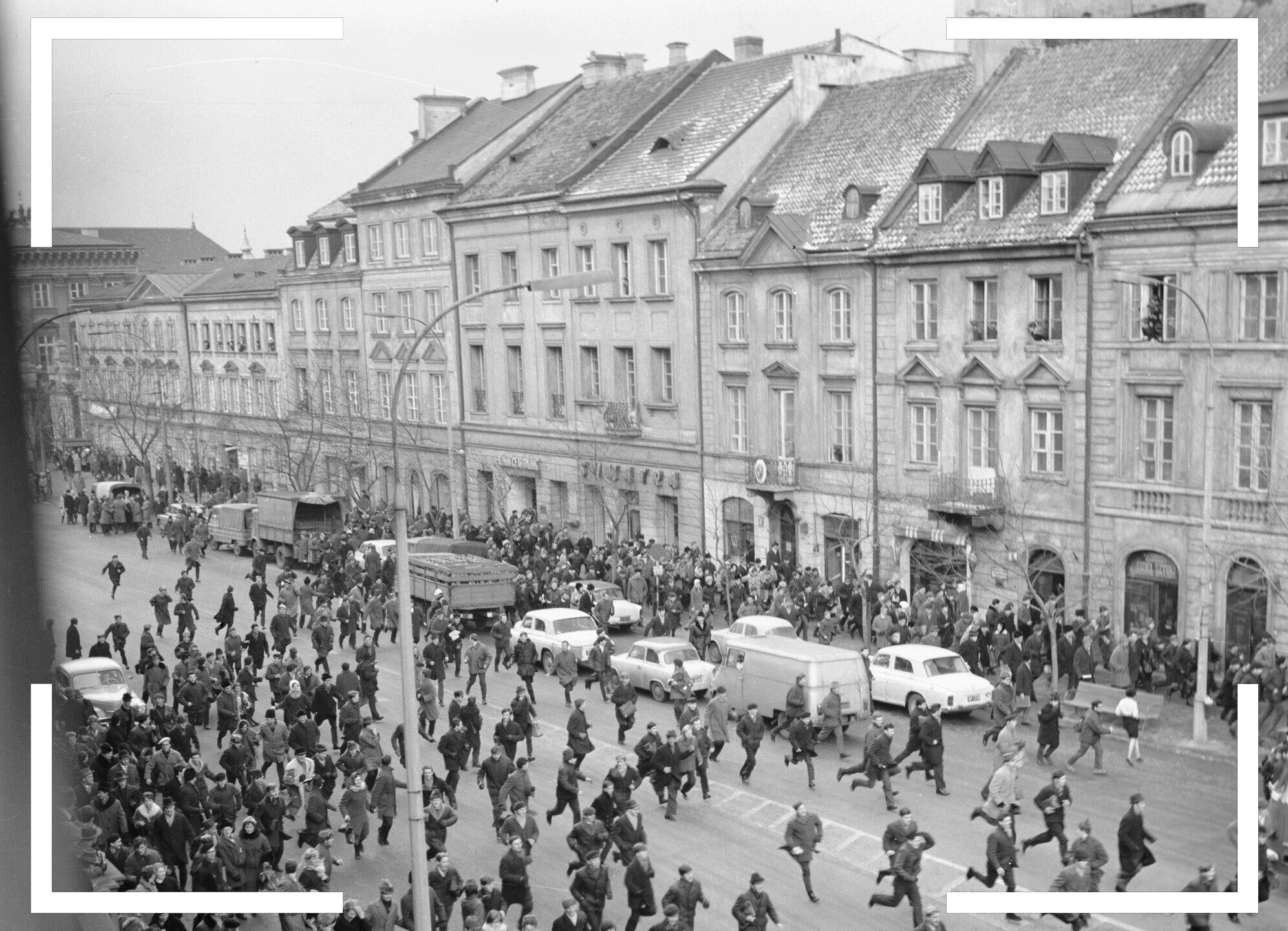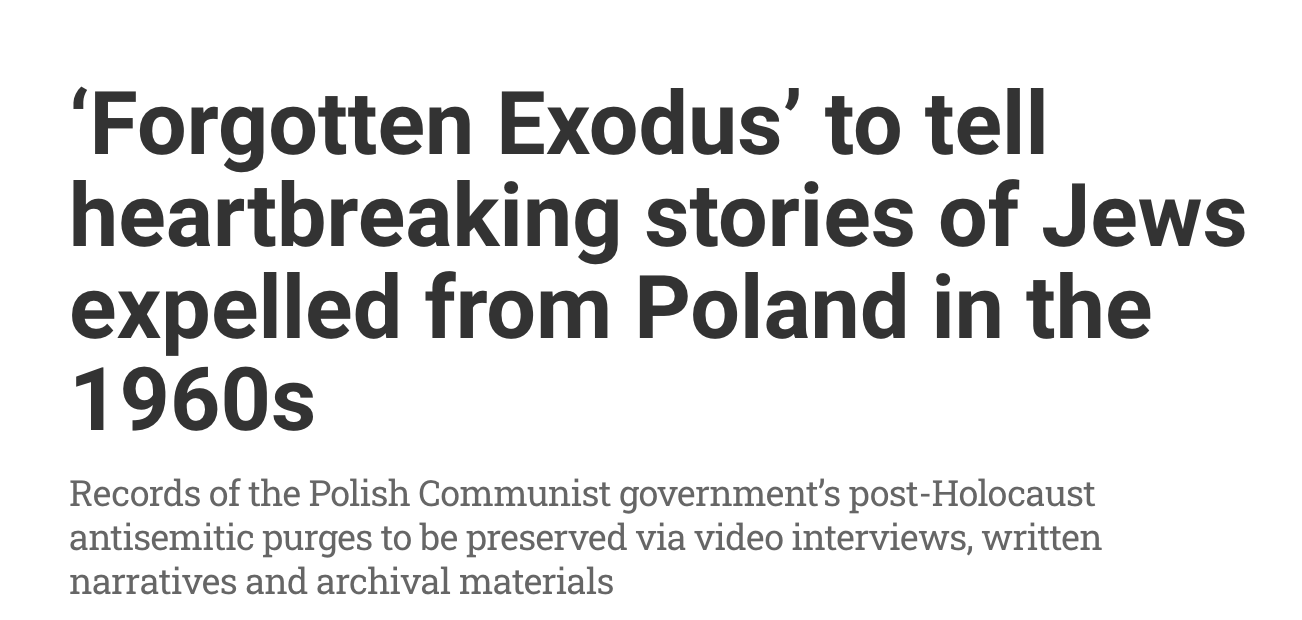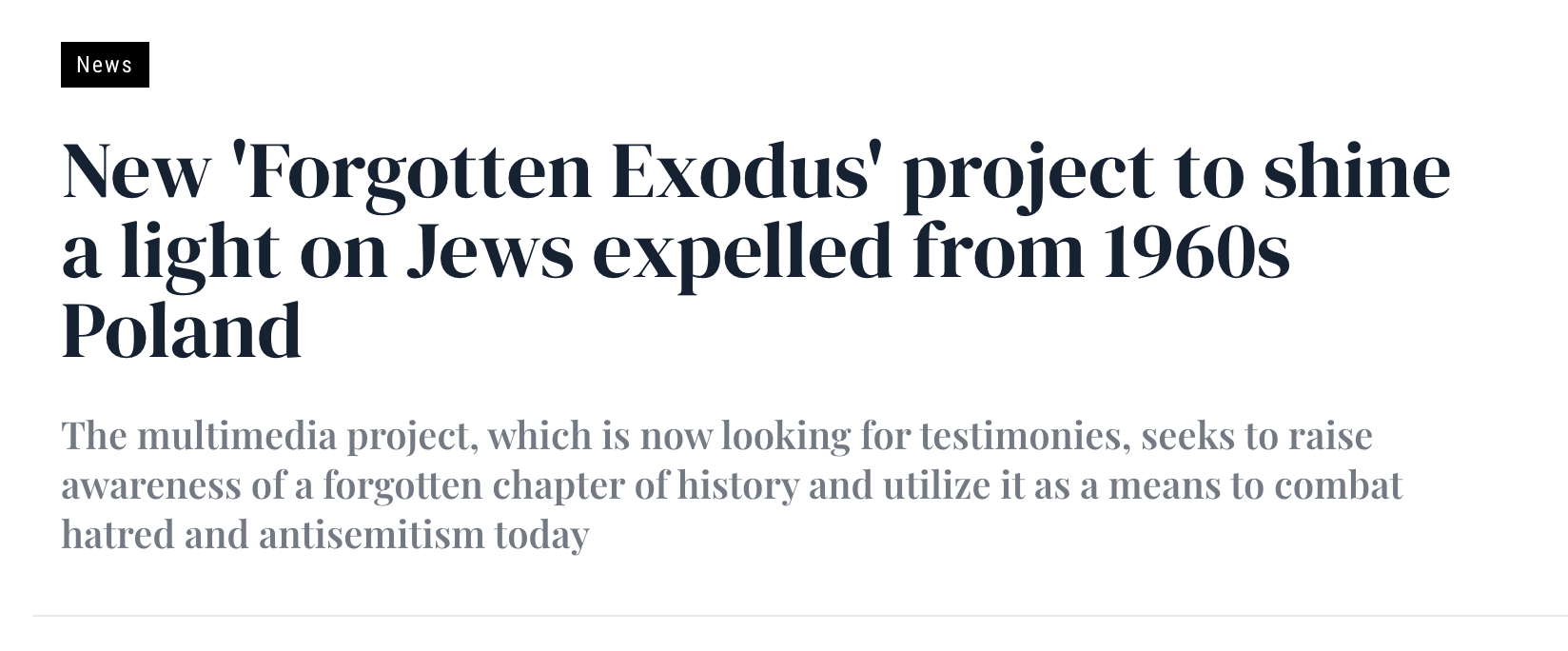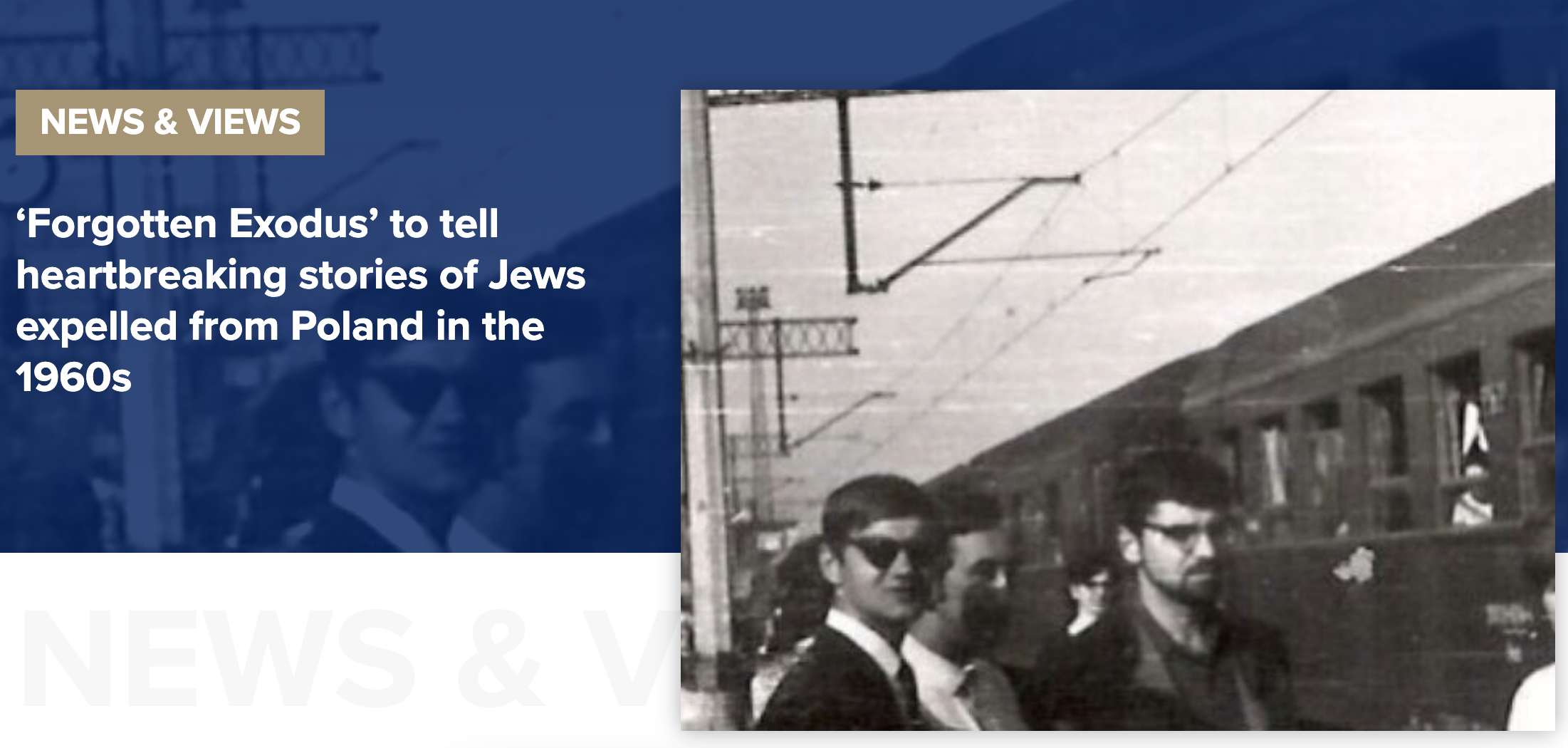The antisemitic campaign of the spring 1968, known as the “anti-Zionist campaign”, saw the mass expulsion of over 15,000 Jews from Poland for allegedly being supportive of Israel. The expulsion took place less than a quarter of a century after the Holocaust and following 1000 years of Jewish history in Poland.
The anti-Jewish campaign was ostensibly sparked by the Six-Day War between Israel and its Arab neighbors, who were supported by the Soviet bloc, in June 1967. In reality, arguments over the war masked a behind-the-scenes power struggle taking place inside the governing Polish United Workers’ Party. In an effort to curry nationalist favor, Władysław Gomułka, Poland’s de facto leader, publicly castigated the last remaining survivors of the Holocaust as a “fifth column” for rejoicing in Israel’s war victory.
This coincided with mass police violence against students protesting the Communist regime and demanding democratic reforms. Students were expelled from universities, arrested, beaten, subjected to torture and detention, or drafted into the army. Poles of Jewish origin were accused of having instigated the rebellion, in conspiracy with “Jewish Stalinists”, “Zionists” and “German neo-Nazis” – a paranoid invention of the secret police and the party propaganda machinery eager to use conspiracy theories to crush the youth rebellion and mobilize support for the government.
The anti-Israeli propaganda drive quickly turned into an aggressive antisemitic campaign which included purging of Jews from workplaces, government institutions and the military as well from positions of authority in leading institutions and in academia, combined with the widespread dissemination of government sponsored antisemitic propaganda.
“Anti-Zionist” resolutions were passed in innumerable public meetings in factories, party offices, and even in sports clubs all Poland. Poles of Jewish descent were then subjected to systematic harassment and prosecuted for defaming the Polish state. The victims were forced to emigrate and had their citizenship revoked. Many were given only a few weeks to leave the country, forced to leave behind their homes and possessions, and their elderly family members. While leaving, they were harassed at the borders and deprived of their possessions.
Some fifteen thousand men, women and children – i.e., half of Poland’s Jewish community, which had only just reinvented itself after the Holocaust – were forced into exile. The expulsion had a devastating impact on Polish Jewry. Organized Jewish life imploded and those handful of Jews who decided to stay kept a low profile in fear of further harassment.
Through many years, the history of this expulsion was largely forgotten internationally, where memories of youth rebellions elsewhere, and of the Soviet invasion of Czechoslovakia dominated images of 1968. The antisemitic campaign is even little known today within the broader Jewish community, despite that its effects are felt to this day.
Forgotten Exodus seeks to document and remember this important – but largely unknown – period in Europe’s modern history. The project provides a platform for the voices of those who experienced the expulsion firsthand – to tell their stories to future generations and to serve as a historical warning of the dangers posed by antisemitism, scapegoating, totalitarianism, prejudice and hatred in any society.





